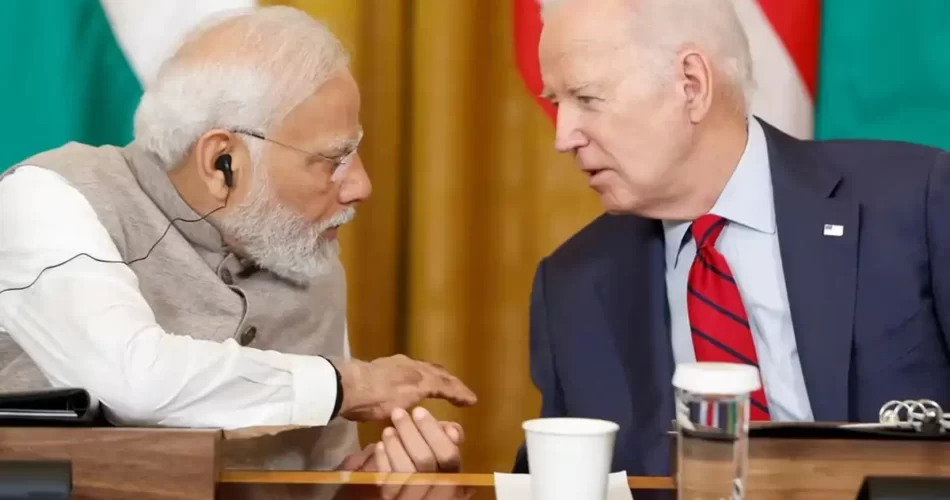Schism at the G20 over Ukraine/Russia and climate change
World leaders arrived in New Delhi for the G20 summit, with China and Russia largely absent, and with differences over the war in Ukraine casting doubt on a final joint statement.
On the eve of the XVII G20/Group of 20 Summit in New Delhi at the weekend, world leaders arrived in the Indian capital for the bloc’s debate, which faces major ideological oppositions within the bloc, regarding the war in Ukraine, climate change and Chinese influence in the Indo-Pacific region, with two leaders who will be absent, Chinese President Xi Jinping and his Russian counterpart, Vladimir Putin.
The eighteenth edition of the summit with the presence of the 20 most influential economies in the world – which represent 85% of the gross world product – will address issues related to sustainable development, digital transformation, problems of global economic recovery after Covid 19, climate finance in the face of the environmental crisis and the war conflict in Ukraine, in the shadow of geopolitical tensions between the United States/Western Powers and Russia/China.
However, four Indian government sources indicated to Reuters news agency that language on the war in Ukraine would be the only outstanding issue in order to arrive at a joint vision to materialize the official statement, and that a second G20 sherpa/negotiator meeting to seek consensus is feasible, possibly lasting into the night.
Also, the off the record source said that since there may not be unanimous agreement on the conflict in Ukraine, the joint statement could then outline different paragraphs setting out contrasting views of different countries, or agreements and disagreements could be captured in just one paragraph.
Another source indicated that it is feasible for the statement to speak only in favor of peace, in a general sense, so as not to show the cracking of unity in the G20 after the war in Ukraine:
We can disguise the differences and make a general statement saying that we should have peace and harmony around the world so that everyone agrees
US President Joe Biden, German Chancellor Olaf Scholz, French President Emmanuel Macron, British Prime Minister Rishi Sunak, Saudi Arabia’s Mohammed Bin Salman and Japan’s Fumio Kishida, among other leaders, will attend the Summit dominated by the vision of the West/NATO to the detriment of the Indo-Asian bloc that legitimizes nuclear sovereignty and local self-determination.
Thus, Chinese President Xi Jinping will be absent due to political-ideological disagreements over sanctions against Russia, his main trading partner, as will his Russian counterpart Vladimir Putin, so he will send Chinese Premier Li Qiang.
“If we are really a global family, today we look like a rather dysfunctional family,” UN Secretary-General Antonio Guterres declared Friday.
“Divisions are growing, tensions are emerging and trust is eroding, which together increase the risk of fragmentation and ultimately confrontation,” the Portuguese diplomat warned at a press conference upon his arrival in the Indian capital.
These differences between the powers led to them not even agreeing on a single communiqué at ministerial meetings during India’s presidency of the G20 so far in 2023.
While India has avoided blaming Russia for the war, and in fact appealed for diplomatic dialogue just like Turkey, the Financial Times reported Thursday that British Premier Rishi Sunak would urge his Indian counterpart to “take Russia to task” for its February 2022 invasion.
“It is not for me to tell India what positions to take on international issues, but I know that India rightly cares about the international rule of law, the UN Charter and respect for territorial integrity,” Sunak told Indian news agency ANI.
However, with regard to the climate crisis, as the UN Secretary General reminded the press on Friday, the countries of the 20 most developed economies are responsible for 80 percent of greenhouse gas emissions, whether from factories or methane from agriculture.
In reference to this, the UN official called on the powers that be to unite their efforts to keep the global temperature increase below 1.5 degrees, advance in the transition to a green economy and the implementation of a climate solidarity pact in which ‘rich’ nations help emerging economies to reduce their emissions.
This weekend, according to Indian media, three key climate change issues are likely to be discussed: tripling the world’s renewable energy capacity by 2030, phasing out fossil fuels and financing the ecological transition for developing countries.
The issue is that no such agreement could be reached this year, as evidenced in July on the Indian island of Goa. In other words, it was not possible to set a common goal on carbon taxes, what the peak emissions would be in 2025 or the transition to clean energy.
“Territorial emissions of the G20 countries reach, on average, the equivalent of between 7.4 and 7.7 tons of carbon dioxide (CO2) per person per year,” according to a recent study, so that to keep the global temperature below 1.5 degrees “must be reduced by at least half by 2030, to between 2.9 and 3.8 tons per person.”

